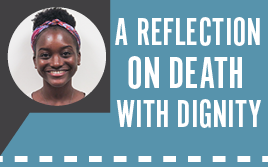In the midst of arguments over hope and change, the battles in the ongoing war on drugs leave behind the bodies of students. The policies that make drug use a crime impact students destined to make mistakes and poor choices in their quest to live life to the fullest.
College is known as the time in one’s life to learn from experience, and take life firmly, so the idea of a ‘war on drugs’ at the university level often conjures images of consumption as opposed to policy. A fraternity’s idea of waging war on alcohol often means polishing off a drink before the ice melts.
Our education borne from experience is wisdom, and our 20/20 hindsight vision allows us to accept our mistakes and impart our new-found knowledge on our children—or those with whom we associate as adults. So, why do the adults of this country not see the dire effects of the Nixon-waged “war on drugs” that started in 1971, before many of our parents were even married?
The question of whether or not drugs should be legal boils down to a distinction between perceiving drug use as a health issue or an issue with crime.
In an article published by Forbes.com July 5, 2011, President of the Institute of Drugs and Drugs Addiction Joao Goulao said in an assessment made ten years after the country decriminalized drug use in 2001 that decriminalization, along with a confluence of treatment and risk reduction policies, worked to reduce the phenomenon of addiction in Portugal.
The fact that getting caught with a small bag of marijuana carries the same arrest penalty that being caught with a large amount of heroin fails the user because the law does not recognize the inherent problem of drug use.
News editor Greg Bieger closed his February 5 opinion on over-prescribing psychotropic medication with the question, “Do we really need to tell them [our children] to say no to heroin and then prescribe Klonopin to reduce stress?”
This matter of perspective is what will allow policy makers to distinguish the difference between viewing a student recreationally experimenting with drugs at a party from a student suffering from depression, anxiety and addiction. And this differentiation will allow parents, friends and anyone concerned to encourage the user to seek help for the underlying issues that led to the drug use in the first place.
While the average college student will experiment with dangerous drugs, those who become addicted usually start with issues stemming from poor self image, depression and other serious mental issues. Learning to reduce stress and cope with life bumps in the road will stop the vicious cycle of anxiety and substance abuse more quickly than a jail sentence.
A report from the Agency for Healthcare Research and Quality finds that almost one in eight of the 95 million visits to hospital emergency departments made by adults in the United States in 2007 were due to a mental health and/or substance abuse problem (www.adaa.org).
The students who get caught are often arrested (and if not they are warned away from the criminality of their action rather than counseled to seek help for their health issue), which means facing the stigma of a criminal record.
The Bureau of Justice Statistics, Department of Justice shows that about 50% of the inmates in federal prisons and 20% of those in state prisons have been convicted of either selling or using drugs. Regardless of whether or not these individuals sought treatment for their possible addictions, they will experience a difficult path obtaining a job.
For college students, the dangers of drinking and drug use can mean much more than a life of addiction; the simple act of experimenting can lead to a stigma that will all but negate the degree earned. Ask yourself about the choices—mistakes—you’ve made and distinguish between the idea of criminal acts and opportunities to better health. Herein lies the mindset policy makers need to consider when making and, hopefully, changing laws.
Ellen is a senior and a Communication major.



Prohibitionists are neither civil nor productive members of society, they are soulless parasites and inhuman, oppressive criminals from whom protection is required.